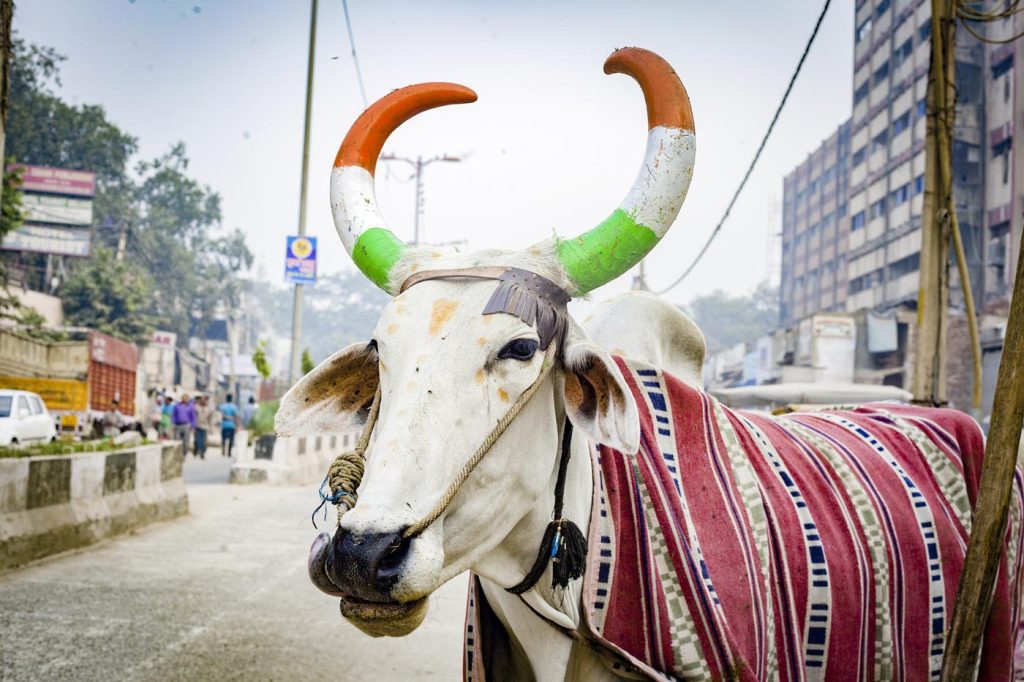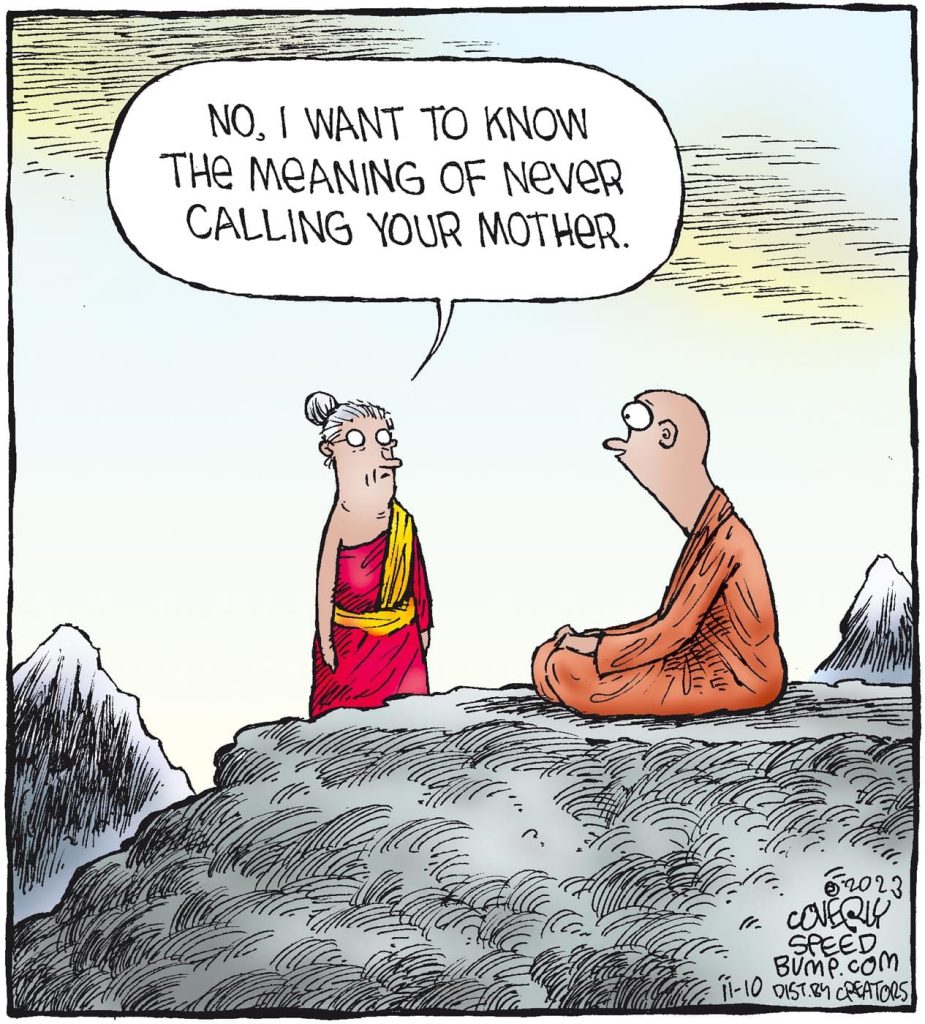“God waits to win back his own flowers as gifts from man’s hands”
Rabindranath Tagore (1861-1941), Bengali poet and philosopher
All that is required to realize the Self is to be still. What can be easier than that?Sri Ramana Maharshi (1879-1950)
Thoughts are giant powers. They are more powerful than electricity. They control your life, mold your character and shape your destiny. Swami Sivananda (1887-1963)
The fire that warms us can also consume us; it is not the fault of the fire. Swami Vivekananda (1863-1902)
When your mind becomes vacant, endeavor to fill it with the awareness of God and His contemplation. Anandamayi Ma (1896-1982), yogini and Bengali saint
If two wise men always agree, then there is no need for one of them. Zambian proverb
In order to make an apple pie from scratch, you must first create the universe. Carl Sagan (1934-1996), famed astrophysicist
My soul is from elsewhere, I’m sure of that, and I intend to end up there. Rumi (1207-1273), Sufi mystic and poet
The key to growth is the introduction of higher dimensions of consciousness into our awareness. Lao Tzu (4th century bce), author of the Tao Te Ching
It moves and It moves not; It is far and It is near; It is within all this and It is also outside all this. Isa Upanishad 1.15
Hate, it has caused a lot of problems in the world, but has not solved one yet. Maya Angelou (1928-2014), American poet
Wrinkles should merely indicate where the smiles have been. Mark Twain (1835-1910), American author
The universe works like an echo: Whatever thoughts you think, will rebound on you. Therefore, be careful of the thoughts you think. Dada J.P. Vaswani (1918-2018), spiritual head of Sadhu Vaswani Mission
A wise man can learn more from a foolish question than a fool can learn from a wise answer. Bruce Lee (1940-1973), martial arts expert
Those who can make you believe absurdities can make you commit atrocities. Voltaire (1694-1778), French writer
The fitness of the pupil is shown in his love for the acquisition of knowledge, his willingness to receive instruction, his reverence for learned and virtuous men, his attendance upon the teacher, and his execution of orders. Dayananda Saraswati (1824-1883), Indian philosopher
Freedom of will is the ability to do gladly that which I must do. Carl Gustav Jung (1875-1961), Swiss psychiatrist
Beyond the senses is the mind; above the mind is its essence, intelligence; beyond the intelligence is the great Self; beyond the great Self is the Unmanifest. Katha Upanishad 2.3.7
Be like the honeybee who gathers only nectar wherever it goes. Seek the goodness that is found in everyone. Mata Amritanandamayi, Kerala-based hugging saint
It should not be hard for you to stop sometimes and look into the stains of walls, or ashes of a fire, or clouds, or mud or like places in which … you may find really marvelous ideas. Leonardo Da Vinci (1452-1519), Italian polymath
Even as a mirror stained by dust shines brightly when it has been cleaned, so the embodied one when he has seen the (real) nature of the Self becomes integrated, of fulfilled purpose and freed from sorrow. Svetasvatara Upanishad 2.14
The knowledge of God cannot be contained within the limits of any book. Satguru Siva Yogaswami (1872-1964), Sri Lankan sage
Silence is the language of the soul. In stillness, you can hear the whispers of your true self. Swami Avdheshanand Giriji, Acharya Mahamandaleshwar of the Juna Akhara
We have a physical body, a mental body, an emotional body, and we are the soul. So, we can think of ourselves like the person in space, in a big cumbersome suit. We want to identify as the being that’s residing inside these bodies, and look at the outside just like a space suit that eventually we will throw off. Satguru Bodhinatha Veylanswami, publisher of Hinduism Today
Sacred is secret in all religions because if you talk about your inner experiences, you make them outer experiences and you stop the process. Satguru Sivaya Subramuniyaswami (1927-2001), founder of Hinduism Today
Did you know?
A Plant-Powered Nation

According to a recently published report by World Atlas, India is the global leader in vegetarianism, with a remarkable 38 percent of its population adhering to a meat-free diet. And vegetarianism is today widely recognized worldwide for its health and environmental benefits.
The report highlights India not only for its significant vegetarian population but also its notably low meat consumption rates. Vegetarianism in India and other countries is driven by myriad factors. Health and environmental benefits are great motivators, but the influence of religion, ethical considerations, economic factors, cultural norms, and a distaste for meat also play significant roles.
Following India, Israel, Taiwan and Italy claim the second, third and fourth spots, demonstrating the widespread acceptance of vegetarianism across diverse cultures. Austria, Germany and the United Kingdom, each with a 9 percent vegetarian population, occupy the fifth to seventh positions, indicating a significant shift in dietary preferences in these countries. Brazil, with 8 percent, Ireland at 6 percent, and Australia, at 5 percent, showcase the global reach of the vegetarian movement.
In a broader context, the United States stands at 36th place with 4.2 percent of its population following a vegetarian diet, while Russia is at the lower end of the spectrum with only 1% vegetarians. Globally, vegetarians make up around 10% of Earth’s population. The data collected reflects the growing consciousness towards health and sustainability and also underscores the diverse range of reasons behind the adoption of vegetarianism.
Basics
Hindu Monism & Dualism

Hindus believe in one supreme being, an all-pervasive Divinity that sustains all there is. But how does one reconcile an imperfect world with the temporal perfection of God?
Philosophers and saints have long debated the exact relationship of God, the soul and world, in exchanges that shaped our religion and set the path for millions of followers. Out of their speculations have blossomed hundreds of schools of thought.
At one end of Hinduism’s rich spectrum is monism, or advaita, which perceives a unity of God, soul and world. Generally, monists believe God is immanent. If creation were a pot, God Himself would be the clay from which creation is made of. There is nothing that is not Him—any differences are but illusions that need to be removed, veils over the discernment of the soul. This is the view proposed by Adi Shankara and others.
At the other end there are the schools that teach dualism, dvaita—exemplified by Madhva and the early Pashupatas—which speak about a real and eternal differentiation. Dualists believe in God as Lord and Creator, but He remains ever separate from man, regardless of the evolution of an individual soul. In the same analogy, dualists see God as the potter, intimately involved but eternally different from the clay pot He makes.
Other views describe reality as one and yet not one, like the ocean and its waves—dvaita-advaita, advocated by sages such as Ramanuja, Srikantha and Nimbarka. Though the specifics of dvaita-advaita differ from tradition to tradition, its main creed describes a perfect, beginningless oneness of God and creation. In this view, the world and God are one in many, but not all, aspects. In time, the difference resolves itself in perfect identity—that is the path of all souls.
Drawn from the teachings of
Satguru Sivaya Subramuniyaswami
